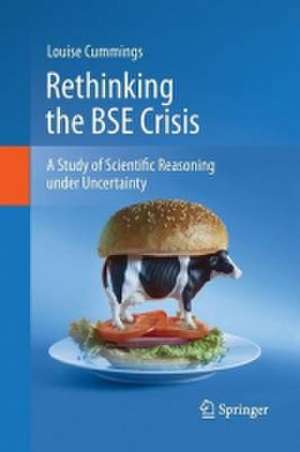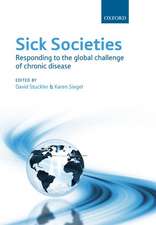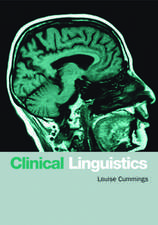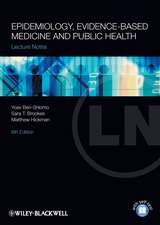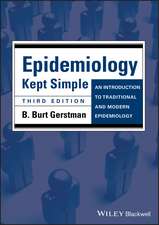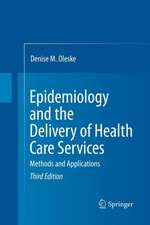Rethinking the BSE Crisis: A Study of Scientific Reasoning under Uncertainty
Autor Louise Cummingsen Limba Engleză Paperback – 29 oct 2014
| Toate formatele și edițiile | Preț | Express |
|---|---|---|
| Paperback (1) | 1092.22 lei 6-8 săpt. | |
| SPRINGER NETHERLANDS – 29 oct 2014 | 1092.22 lei 6-8 săpt. | |
| Hardback (1) | 1099.20 lei 6-8 săpt. | |
| SPRINGER NETHERLANDS – 20 aug 2010 | 1099.20 lei 6-8 săpt. |
Preț: 1092.22 lei
Preț vechi: 1149.71 lei
-5% Nou
Puncte Express: 1638
Preț estimativ în valută:
208.100€ • 218.76$ • 173.95£
208.100€ • 218.76$ • 173.95£
Carte tipărită la comandă
Livrare economică 31 martie-14 aprilie
Preluare comenzi: 021 569.72.76
Specificații
ISBN-13: 9789401784917
ISBN-10: 9401784914
Pagini: 260
Ilustrații: XV, 242 p.
Dimensiuni: 155 x 235 x 14 mm
Greutate: 0.37 kg
Ediția:2010
Editura: SPRINGER NETHERLANDS
Colecția Springer
Locul publicării:Dordrecht, Netherlands
ISBN-10: 9401784914
Pagini: 260
Ilustrații: XV, 242 p.
Dimensiuni: 155 x 235 x 14 mm
Greutate: 0.37 kg
Ediția:2010
Editura: SPRINGER NETHERLANDS
Colecția Springer
Locul publicării:Dordrecht, Netherlands
Public țintă
ResearchCuprins
Acknowledgements.- Preface.- 1. BSE – A LEAP INTO THE UNKNOWN.- 1.1 Introduction.- 1.2 Transmissible Spongiform Encephalopathies.- 1.3 The BSE Knowledge Problem.- Notes.- 2 THE SCIENTIFIC CHALLENGE.- 2.1 Introduction.- 2.2 The Current Paradigm in Epidemiology.- 2.3 Early Epidemiological Investigations.- Notes.- 3 ARGUING THROUGH UNCERTAINTY.- 3.1 Introduction.- 3.2 Presumption and Science.- 3.3 Presumption and Uncertainty Management.- 3.4 Presumption, Reasoning and Fallacies.- Notes.- 4 GOOD ARGUMENTS DURING THE BSE INQUIRY.- 4.1 Introduction.- 4.2 The Early Years: 1986 to 1989.- 4.3 Summary.- Notes.- 5 THE UNRAVELLING OF AN ARGUMENTATIVE STRATEGY.- 5.1 Introduction.- 5.2 The Middle Years: 1989 to 1994.- 5.3 Summary.- Notes.- 6 AN UNCHALLENGEABLE SCIENTIFIC CONSENSUS.- 6.1 Introduction.- 6.2 The Final Years: 1994-1996.- 6.3 Summary.- Notes.- 7 POLITICAL AND COMMERCIAL INTERESTS IN THE BSE INQUIRY.- 7.1 Introduction.-7.2 Reasoning and Non-Scientific Interests in the BSE Inquiry.- 7.3 Summary.- Notes.- 8 LEARNING THE LESSONS OF THE BSE CRISIS.- 8.1 Introduction.- 8.2 A Model of Reasoning in Scientific Inquiry.- 8.3 The Model, Risk Analysis and Public Health Science.- 8.4 Summary.- Notes.- Bibliography.- Index.
Textul de pe ultima copertă
In 1986, the emergence of a novel brain disease in British cattle presented a unique challenge to scientists. How that challenge was addressed has been the subject of a public inquiry and numerous academic studies conducted to date. However, none of these investigations has sought to examine the reasoning of scientists during this critical period in the public health of the UK. Using concepts and techniques in informal logic, argumentation and fallacy theory, this study reconstructs and evaluates the reasoning of scientists in the ten-year period between 1986 and 1996. Specifically, a form of presumptive reasoning is described in which extensive use is made of arguments traditionally identified as informal fallacies. In the context of the adverse epistemic conditions that confronted scientists during the BSE epidemic, these arguments were anything but fallacious, serving instead to confer a number of epistemic gains upon scientific inquiry.This book argues for a closer integration of philosophy with public health science, an integration that is exemplified by the case of scientific reasoning during the BSE affair. It will therefore be of interest to advanced students, academics, researchers and professionals in the areas of public health science and epidemiology, as well as philosophical disciplines such as informal logic, argumentation and fallacy theory and epistemology.
Caracteristici
First study of scientific reasoning during the BSE epidemic in the UK Comprehensive discussion of the transmissible spongiform encephalopathies that is accessible to non-scientific readers Longitudinal study of scientific reasoning as opposed to study of reasoning at a discrete point in time Examples of reasoning drawn from primary sources (e.g. evidence presented to the public inquiry into BSE; minutes of meetings of scientific advisory committees)
